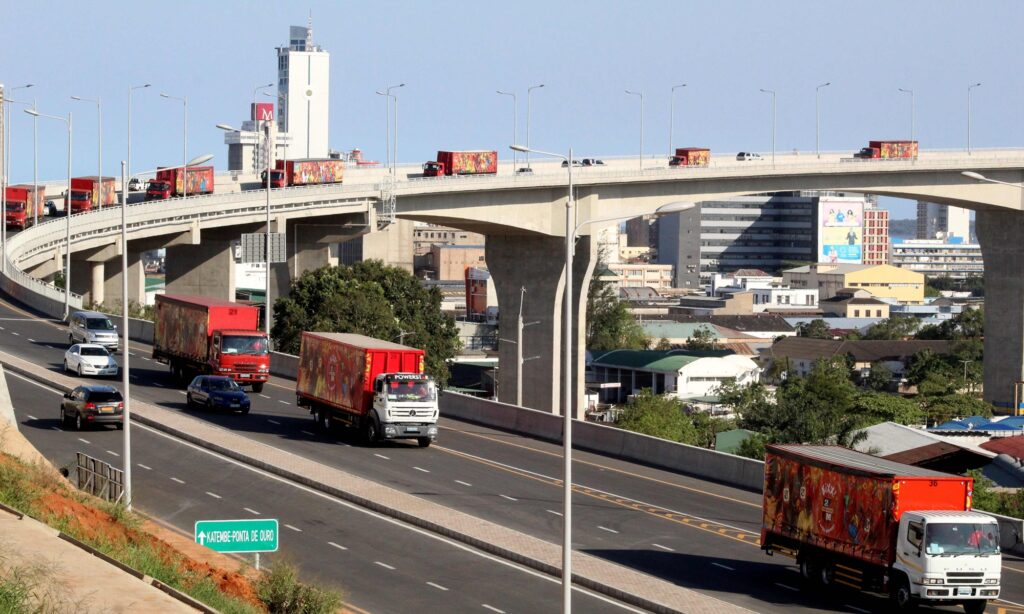There are some voices in the media questioning whether Chinese lending to the Belt and Road Initiative (BRI) has dried up, citing heavy debts and that South Africa needs free trade deal not BRI.
However, David Monyae, director for the Center for Africa-China Studies at the University of Johannesburg, finds these points of views are typical Western media’s way of undermining Chinese and African cooperation when it comes to national development.
At an exclusive phone interview on Friday, Monyae told the Global Times that Africa-China development cooperation in the past few years has demonstrated that China-proposed BRI and Africa’s regional development goals are well aligned.
Tremendous investment
In a report on Wednesday, the FT said that Chinese overseas energy finance collapsed to its lowest level since 2008 in 2020.
However, as of 2019, China’s total direct investment in Africa reached $49.1 billion, an increase of nearly a hundred times from 2000 levels. As of August 2020, the China-Africa Development Fund has invested more than $5.4 billion in 37 African countries, driving Chinese companies’ investment in Africa to $26 billion, according to Chinese Ambassador to the African Union Liu Yuxi’s byline article in the Beijing-based China Investment magazine in late January.
The investment projects stretch across diverse sectors including infrastructure, productivity cooperation, agriculture and people’s livelihood and energy minerals, Liu said.
The best way of looking at the past few years is the real profit, Monyae said.
In mid-November 2020, China and Africa celebrated the 20th anniversary of the Forum on China-Africa Cooperation (FOCAC).
“It is the best moment to reflect and look back, and I think the records speak for themselves if we look at the kind of investment that has been made by China in Africa. The investment has grown tremendously, mainly in infrastructure development,” Monyae noted.
Over the first 11 months of 2020, China’s direct investment flow to Africa reached $2.8 billion, up by 0.04 percent year on year, according to data released by the Ministry of Commerce on January 14.
It is investment itself that is going along with Africa’s Agenda 2063, a roadmap for Africa’s continental development, “so when we look at the BRI and its counterpart Africa’s Agenda 2063, one sees a number of areas of convergence between the two groups,” Monyae said.
Looking back at 2020, he also analyzed the challenges in Africa’s development.
“But like any other relationship, it also has its ups and downs depending on existing prevailing global and continental environments, including the COVID-19, an unexpected event,” Monyae said.
The pandemic has an impact not just on the investments through the BRI in Africa, the global economy has been affected. “There’s no country that has gone unscathed. So, Africa has had its own share of downturn when it comes to its own development,” Monyae continued.
“The situation is stabilizing in many key areas, we see activity continuing and most of these projects will meet their deadlines anyway. Certain measures have been taken by Chinese construction companies, local companies are working together with governments as well,” he stressed.
“So [among] the number of countries and regional organizations that have entered partnership with Africa, when we look at the record, Africa-China relations have been highly successful, if one looks at statistics in terms of actual investments,” Monyae stressed.
As for the sources of investment from China, Monyae also said that “there has been a massive movement of nongovernmental lenders, business activity and private investors all coming [to Africa].”
“The FT article seems to just look at Africa continent in a very simplistic way. The article also fails to understand that the BRI is not a five-year or 10-year program, it is a long-life path. It is also flexible with ability to adjust wherever challenges are confronted,” such as COVID-19, global financial crisis and environmental dimension, Mongyae stressed.
“One can therefore not pick one problem in one African country and make them major generalization over the entire BRI,” Monyae said.
BRI means benefits
Another opinion is that the region needs a free trade deal with China, not the BRI.
Mat Cuthbert, shadow deputy minister of Trade and Industry of South Africa, published his opinion in Daily Maverick, a South African news outlet, arguing that the country should pursue an FTA rather than opting for the alternative, which is the BRI.
In Monyae’s point of view, such thinking is outdated.
“It wants us to maintain status quo,” he posed his disagreement, saying to recover from the global pandemic, Africans need to be innovative and think out of the box.
For example, from tourism market of China’s 400 million middle class to entire new travel routes through Cape Town, a port city on South Africa’s southwest coast, Monyae believes that Africa is blessed with two oceans – Atlantic and Indian Ocean – and its vast potential needs to be unleashed.
“Through the BRI, we can extend our trade far beyond our traditional markets,” he said.
We are strategically positioned to change the whole setting in terms of trade. We can only do that if we fully understand and take advantage of belt and road,” Monyae stressed.
A view of Chinese-built bridge in Maputo, Mozambique Photo: VCG



